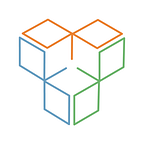The Global Mental Health Databank — Practicing Better Science Together
By Lara Mangravite
President, Sage Bionetworks
(article originally published on Nov. 18, 2020)
At Sage, we build responsible practices for data sharing in health research. By combining policy and technology, we work to ensure data can be safely used across institutes. We do this because broad data resources and interdisciplinary teams are necessary to understand the complexities of human health, and we need to use this kind of information to improve people’s experiences in the health system.
We have been successful in stimulating collaborative science across teams of researchers. But we recognize that our approaches to data sharing haven’t included everyone who should be part of the conversation. Patient advocates and community-based organizations have asked us for many years why we don’t prioritize participant involvement. Indeed, there are a wide range of research opportunities that are only possible with direct involvement of the individuals contributing the data. We haven’t had a good answer.
Researchers simply can’t keep excluding those who provide the data. While we at Sage are partial to the ethical arguments for this, there are plainly scientific arguments as well. As data collection creeps out of the lab and into our homes, researchers will not recruit and engage diverse cohorts if the people in the study are treated as subjects, not partners.
In our own work we focus on “real-world evidence” — how to collect, govern, and analyze a wide range of extremely personal data about our everyday lives, including medical care, daily habits, self-management practices and lived experience. What is the value proposition that would convince anyone to contribute these kinds of data to research? How broadly are people willing distribute data collected about their daily lives? How do these tradeoffs look to people who aren’t traditionally asked their opinion about tradeoffs?
The challenge then is to create a data governance system that empowers people to be active partners in managing the way that their data is collected, shared, or used in research.
This is why I am so excited about the new partnership we’ve just formed with Miranda Wolpert and the Mental Health Priority Area at Wellcome Trust. We’re going to build — and test — that data governance system.
The Global Mental Health Databank project seeks to research strategies — active ingredients — that youth around the world can use to self-manage anxiety and depression, to develop a system that guides youth to those strategies that they are most likely to find useful. To be clear, our project is to design the governance for this kind of databank. We’ll be testing out the ways that participants want to govern such a databank — we are not conducting the research on mental health!
To be clear, our project is to design the governance for this kind of databank.
Doing this will require active partnership with both researchers and youth to help collect the data needed to answer the question of “what works for whom and why” for mental health management. A data sharing system designed for these purposes must meet the needs both of youth with lived experience in mental health and of mental health researchers. Participants and researchers are often interested in different questions — both of which have value. Just as researcher-led programs have often overlooked participant needs and interests, participant-led programs may miss subtleties of statistics and biology that are important to researchers.
Over the next two years, we will work together with youth and researchers to evaluate the feasibility of successfully implementing a participant-led databank for global mental health research that enables the collection, sharing and use of data from youth across three countries — South Africa, India, and the United Kingdom. We will run this study as an experiment in participant-led data governance designed to address several key questions: What value do youth find in participating in this kind of databank and how does that vary across individuals? Is youth involvement in research impacted by their control over how their data is collected, shared, and used? What levels of oversight do they wish to have? Do these considerations have an impact on what types of data they are willing to contribute? What do they wish to do with these data and what support do they need to achieve their goals? How do the preferences of youth and the preferences of researchers intersect?
I am thankful to be collaborating with a team of amazing researchers with deep expertise in youth mental health: Drs. Zuki Zingela and Melvyn Freeman in South Africa, Dr. Soumitra Pathare in India, and Dr. Tamsin Ford and Dr. Mina Fazel in the UK. These individuals work directly with school-based youth on the management of mental health. Together, we will evaluate the interests of youth in engaging with a databank program of this sort. We are also joined by two research teams from the University of Washington, Drs. Pamela Collins and Pat Areán who have expertise in global mental health collaboratives and in digital mental health assessment, respectively.
Our team is committed to embarking on this journey in partnership with youth. To build a system that meets the needs of youth and researchers, we need both perspectives to be involved right from the beginning. To this end, our first action has been to hire young adults onto the team to co-develop this work with these researchers. They will be supported by a series of panels of youth with lived experience of mental health in each country who can provide a diverse set of perspectives to inform the project.
Stay tuned!
